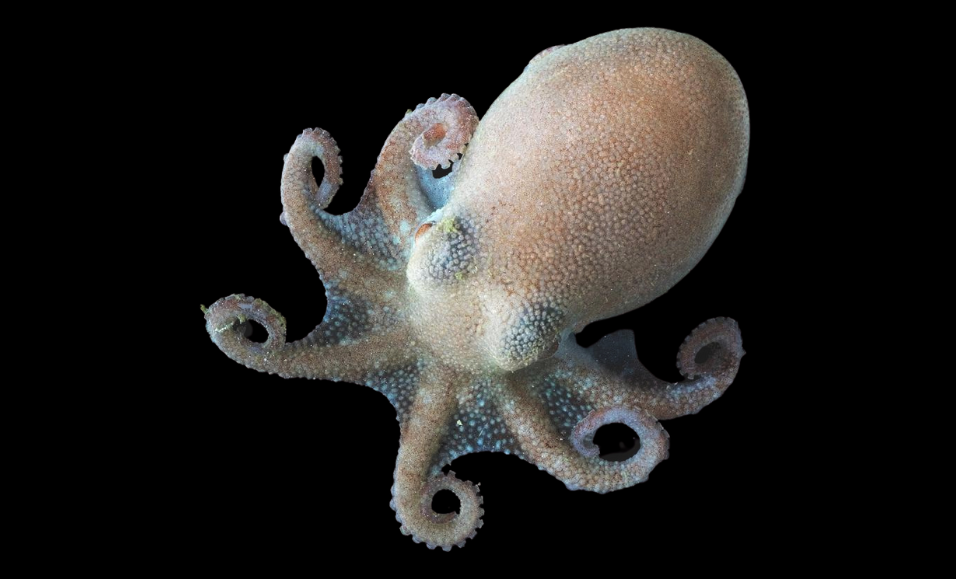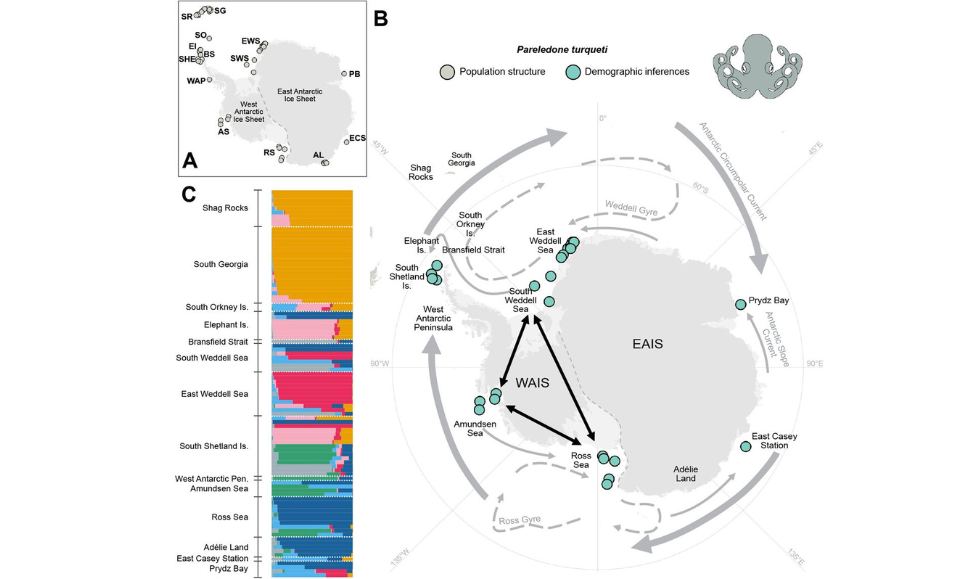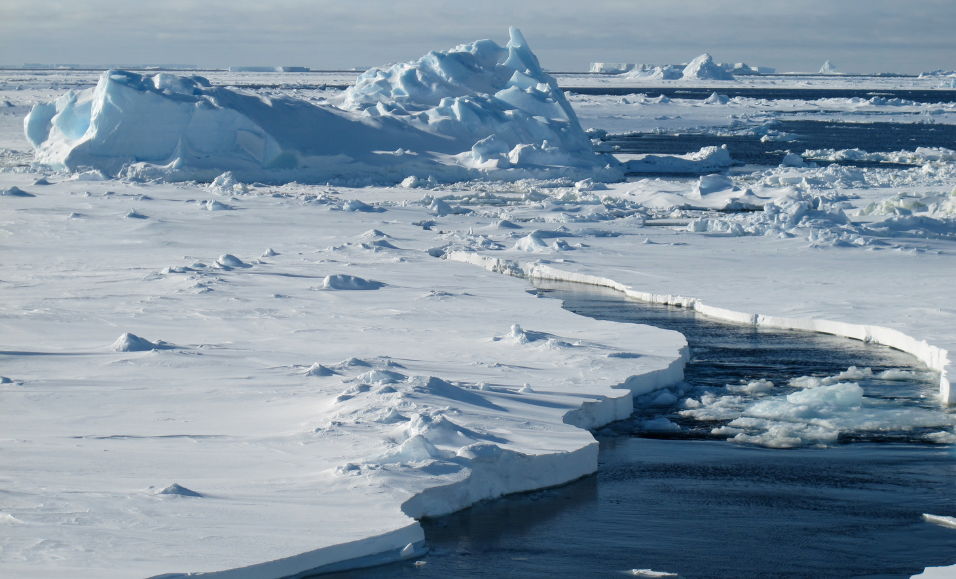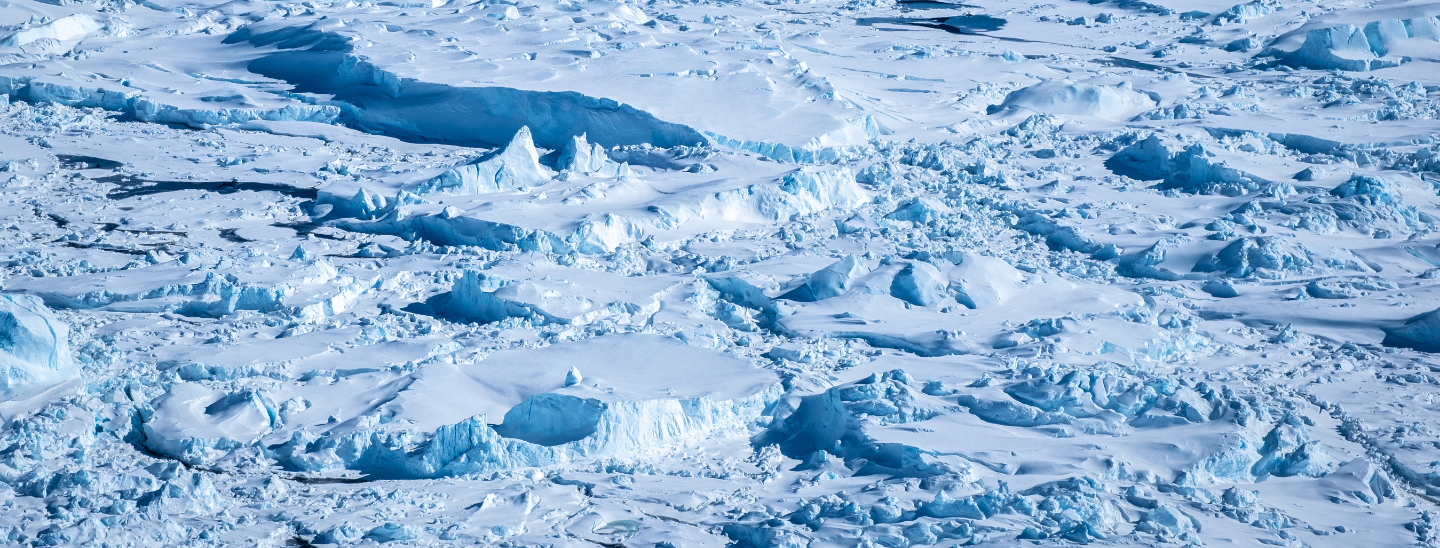Why did the octopus cross the West Antarctic Ice Sheet?

Turquet’s octopus (Pareledone turqueti). Credit: British Antarctic Survey

Figure showing where the octopus samples used in the analysis were collected and the demographic modelling used to test for the existence of the trans-West Antarctic seaway that would indicate the WAIS collapse. Credit: Lau et al.

New research has provided evidenced for that the West Antarctic Ice Sheet collapsed during the Last Interglacial Period.
New research has found that the Turquet’s octopus (Pareledone turqueti) from the Ross and Weddell Seas share distinct genetic connectivity dating back to the Last Interglacial Period around 125,000 years ago.
As Dr Sally Lau from James Cook University explains these octopuses could only be related if the West Antarctic Ice Sheet completely collapsed and opened a seaway connecting the two basins allowing the octopuses to travel.
The findings also have an uncomfortable implication.
“Using genomic dating, our results show that the West Antarctic Ice Sheet collapsed during the Last Interglacial Period. This provides the first empirical evidence that the tipping point of this ice sheet could be reached even if we achieve the Paris Agreement targets of limiting warming to 1.5 – 2°C ,” Dr Lau explains.
The research solves a long-running mystery that has puzzled scientists about whether the West Antarctic Ice Sheet collapsed during the Last Interglacial Period.
During this period the global air temperature was 0.5 – 1.5°C warmer than in the pre-industrial period, but global sea level was 5 – 10 metres higher than today.
It has been uncertain whether the West Antarctic Ice Sheet contributed to this sea level rise because the geological records were unclear and the ice sheet modelling was providing conflicting results.
When Dr Lau commenced her PhD project in 2018, her supervisors SAEF Chief Investigators Professor Jan Strugnell (James Cook University) and Dr Nerida Wilson (Western Australia Museum) suggested that population genetics could be an exciting and novel approach to answering this long-standing question.
So, they gathered a transdisciplinary team of geneticists, biologists, glaciologists, computer scientists and ice-sheet modellers and set to work.
An important step was identifying a seafloor species with circumpolar distribution and enough museum samples to test. They eventually landed on the Turquet’s octopus (Pareledone turqueti), as it has been living in the Southern Ocean around Antarctica for about 4 million years.
Its DNA holds a history of its past and can be used to look back in time to pinpoint when different populations were mixing together and exchanging genetic material.
Using genetic samples collected from 96 octopuses collected over three decades from around Antarctica, the octopuses connectivity was tested against different hypothesised scenarios. These included no collapse, partial collapse and full collapse of the West Antarctic Ice Sheet.
Dr Lau and the team found that signatures of the West Antarctic Ice Sheet collapse were clearly detectable in the octopus samples. These signatures showed that the octopuses shared DNA when the seaway was open around 125,000 years ago but haven’t since they became isolated when the seaway closed up. This connectivity was clearly different from their usual movement patterns around Antarctica.
As Dr Lau explains these findings will help scientists better predict how the ice sheet will change in the future.
“Understanding that the West Antarctic Ice Sheet completely collapsed during the Last Interglacial period will help scientists to define the tipping point of its future collapse under climate change. This will also improve future global sea level rise projections under different climate scenarios.”
“Our findings demonstrate that through transdisciplinary efforts, big questions can be addressed through innovative ways that we couldn’t have imagined before.”
Read more
Lau S.C.Y., Wilson N.G., Golledge N.R., Naish T.R., Watts P.C., Silva C.N.S., Cooke I.R., Allock A.L., Mark F.C., Linse K. & Strugnell J.M. (2023) Genomic evidence for West Antarctic Ice Sheet Collapse during the Last Interglacial Period, bioRxiv DOI: https://doi.org/10.1101/2023.01.29.525778
About the author
Anna Quinn
Anna is SAEF’s the Senior Communications Adviser.
